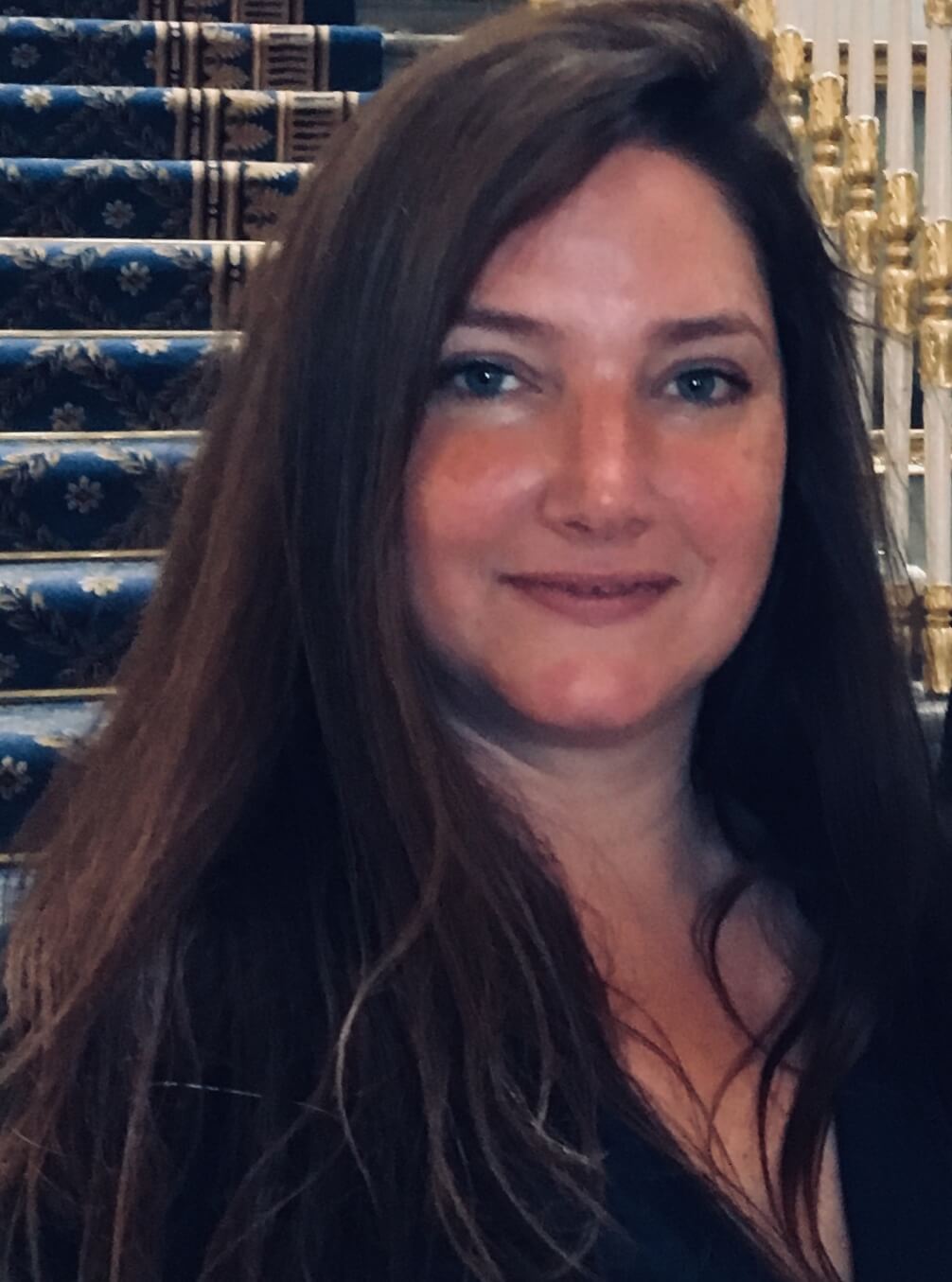

Course overview:
Are you looking for new ways to move through blocks or resistance with clients or supervisees?
Do creativity and art and inspiration sound interesting in relation to therapy?
Would you like to add an extra dimension to your therapy practice?
Could focused attention on imagery give new perspectives on recurring human themes in your therapy work?
Does a different approach interest you as your next CPD?
Clients can find it hard to find the words to make sense of their current situation and imagine their futures, especially through the pandemic. Art provides a language that enables clients to connect with their emotions and experiences – providing a language for the intangible, the complex and paradoxical, and that which is just outside of awareness.
There's no need for you to draw or paint during this course! Even if your false self or inner critic says you’re useless at drawing – you can absolutely benefit from this workshop. Art inspiration isn’t about being able to paint. It’s the practice of giving focused awareness to a piece of art; just as you already bring high-quality attention when being with your clients or supervisees.
Art appreciation is not about creating a masterpiece yourself. It is about self-expression through ideas and awareness through looking at colour, form, shape, texture, imagery, symbolism and emotion. It is something we can all do and appreciate in our own way. Creative exploration and attention can unfold a rich tapestry depicting the inner world of the client or supervisee. The course is about accessing your own inspiration. The relevance of this workshop to your therapy setting is appreciating how to facilitate a client in exploring theirs too. This course equips you with greater confidence to facilitate a client's ability to access their inner world through creative expression. This could encompass a client bringing to a session something they have created: a drawing, painting, a collage or sculpture, or piece of creative writing.
This Foundation course will introduce you to accessible ways of using art and inspiration in your therapy practice. Mary and Sarah will share with you this powerful approach, enabling you to start to experience it for yourself and see new possibilities emerging as opportunities for your clients as well as for yourself as a therapist or supervisor.
Open internationally at times designed to suit European and North American time zones, this programme is suitable if you are working with people or clients across a broad spectrum including:
- guiding and mentoring
- coaching
- therapeutic practitioners
- leadership and management
- educational or dance/ art movement
- working within a prison setting.
Works of art are intended to evoke an emotional response. Their themes are often intensely human: love, distress, family, relationships, politics, money, and power.
The word "Renaissance" means a rebirth or re-emerging of ideas. Renaissance art in particular focused on societal changes in science and religion and society. Those themes are massively relevant in therapy conversations today. How imagery is used to communicate and stimulate still remains relevant for all of us, in a world of intrusive media with the potential to distribute ideas worldwide in a single click.
Renaissance of Art and Inspiration in therapy is a unique course founded on the importance of recovering our sense of what it means to be human in an increasingly mechanical world. With so much emphasis on machines, systems and checklists, we urgently need to reintegrate creativity and inspiration into our lives while also deepening our own skills when working with clients. Learning and discovering how to look, read and listen to the language of art is one of the most practical, direct ways (proven neuro-scientifically) that we can help others return to a sense of meaning, and to a sense of human betweenness: that is, how and what it means to be in the world, between our reality ‘out there’ and our internal world ‘in here’, and much of that is based on our sense of perception.
As so much of our attention is now drawn away from direct engagement with each other, people are becoming increasingly isolated and are losing natural human capacities; the ability to notice subtle changes in facial expressions and gestures, or to have a sense of self esteem or trying to move beyond limiting behavioural patterns. Remembering how to read, respond and be with each other is essential for it is the basis of our communication and therefore connection. Soft skills which include intuition, empathy, compassion and imagination as well as an ability to really look, listen and respond in the most appropriate ways, are proven to be enhanced after engaging our different perceptions through art. Blood flow increases to the brain when we engage with a great work of art, increasing states of inspiration, creativity and compassion. Deepening our understanding of human nature, and developing the art of dialogue, of opening the lines of communication also benefits our clients - and us - in a multitude of ways. Art has an immediate way of reaching into the world of the psyche, which depth psychologist Dr Carl Jung said, was made up essentially of images, and it is from this world of the image that Art is able to help facilitate the understanding in us and others, the complexity and depth of being, returning your client to a sense meaning, of connection and of what it means to be human.
This course will show you how to:
- Become aware of your responses to creativity
- Confidence and inspiration in using imagery and metaphor in therapy work
- Unblock a sense of stuckness with clients or supervises
- Experience a potential renaissance of art and inspiration for yourself, giving you a greater insight into this approach for your work setting
- Find out whether this is an approach that you would like to explore further as part of your coaching practice
These skills are applicable for therapists who are facilitating clients as individuals or pairs or groups, along with supervisors working with individual supervisees or leading group supervision.
There will be a range of tutor inputs and opportunities for discussion among the attendees. Mary will guide you in how to appreciate a work of art, such as a painting or a sculpture – working with mind and emotion and somatic responses, while using mindful attention drawing a wider awareness.
We will support your learning through:
- Seeing new ways to appreciate art, using creativity alongside working with imagery and metaphor
- Revealing how to appreciate art and bring forth its relevance to therapy practice for the benefit of themselves and their clients.
You will receive:
- Practical tips on seeing art with new eyes
- Guiding principles for bringing new inspiration for clients and supervises
- Ways of bringing more creative appreciation into your practice using tips and techniques from this course
- Knowledge transfer from a tutor in Mary Attwood bringing a unique combination of skills from her background as a mindfulness and yoga teacher, as well as an art historian – who has herself sought new meaning and perspective in life, drawing from the universally-relevant themes shown in works of art to inspire her on life’s journey
Mary and Sarah will combine their love of art and creativity with a passion for therapy as a transformational agent of change, where intuition and awareness are hugely valuable assets for any therapist or supervisor.
By attending this 2-day workshop, participants will receive a CPD certificate of 12 hours towards their annual CPD log. But more than this, they will become more equipped to add new perspectives to therapy for clients who are stuck or lacking inspiration or who want to find new meaning in life.
It’s easy to participate – to benefit from this workshop, all you need is attention and observation - which you already have inside yourself.
This is a chance for therapists and supervisors to give their busy minds and caseloads some reflective respite.
This 2-day workshop is an introductory step towards a new relationship with creativity through arts and inspiration.
There is no requirement to draw or paint or write anything during the course, or to share anything necessarily. Although we always welcome any sharing of thoughts, ideas, or creative work with a warm heart and open mind.

Mary Attwood
Mary Attwood is an art historian, author, lecturer and teacher and was the founding Chairman of the Victoria branch of The Arts Society, London, a membership charity dedicated to enriching lives through the arts. She is also a qualified teacher in lifelong learning and a Yoga Alliance registered yoga, meditation and mindfulness teacher. She has also worked as creator, producer, publicist and script writer for her own production company and created an award winning line of wellness DVDs, created training courses and has ghost written two books published by Watkins.
Mary holds an MA with distinction in Myth, Cosmology and the Sacred where her thesis, Rebirthing a Lost Vision of Renaissance Art, researched quattrocento Florentine Renaissance art from a broad context of ancient Greek philosophy, the neuroscientific approach of Dr Iain McGilchrist’s groundbreaking research on the different modes of attention of left and right hemispheres of the brain, archetypal psychology and Renaissance artistic approaches. This is currently being transcribed into a book. She also holds a BA honours degree in the History of Art, University of London, where her studies focused on Italian late Medieval and Renaissance art and architecture.
“I met Mary when she ran an art appreciation class. I was entranced by her knowledge – and the way she made a subject that could be thought of as ‘dry’ by some, totally fascinating!” D. Harding
Mary’s expertise lies in her scope of experience, practice and study in both academic Art History (which she has studied since the age of 16) with her research and practices of consciousness. She emphasises the importance of awakening to the potency of art beyond rationalising analysis, categories and styles, to include imaginative and felt responses; of bridging ancient half-forgotten approaches to art with consciousness, psychology and neuroscience; and re-visioning art from a broad inclusive perspective of metaphor and meaning, myth and imagination, intellect and history. She hosts salon style talks, gallery trips, discussions and study days for corporates and private clients as well as the charity Age UK. She teaches in adult education throughout London and Surrey, is a visiting lecturer at the Royal College of Art and presented a talk at Dr Iain McGilchrist’s conference in the Summer of 2019 entitled; Renaissance Art; A Harmony of the Hemispheres. Mary has written promotional pieces for high profile artists’ exhibitions and contributed to the artist Degard’s book, Celebrities and Icons?
Mary’s work has been described as addressing the heart of images and the heart of the seer, by offering what might be called a right hemispheric view of art enabling a broader context to emerge. Neuroscientific evidence has revealed that how we see art awakens epistemologies, greater states of inspiration, quiet insights, arouses the higher imagination beyond mere fantasy, opens eyes to see from different perspectives (problem solve), shift perceptions and an ability to embrace ambiguity. These qualities are essential in meeting today’s challenges, inviting philosophical questioning and encouraging a move through and beyond current reductionist viewpoints.

Sarah Paton Briggs
Sarah has long been interested in art and creativity, having been involved in drama and music and needlework and art since schooldays. However, working with Mary Attwood gave her the skills to see into works of art in more depth. As a therapist and supervisor and trainer, Sarah now brings creative approaches into her therapy work. She will be sharing these tips and techniques during this course.
Sarah Paton Briggs brings her experience of working therapeutically with survivors of sexual abuse and rape, along with a wealth of knowledge regarding trauma therapy for military veterans and first responders.
Sarah has provided therapy for veterans funded by Walking With The Wounded and Help 4 Heroes. She has also given clinical assessment support for The Dare To Live Trust’s equine-facilitated programmes for veterans. Her clients have comprised serving members of the armed forces or emergency first-responders or statutory services. Sarah has undertaken therapy programmes either privately-funded or through Employee Assistance Programmes including private health insurance schemes for employees of the Metropolitan Police Service, Wiltshire Fire Service, Wiltshire Police, Gloucestershire Police, Wiltshire Council.
As part of The Grove’s team, Sarah co-wrote a successful proposal funded by the building’s insurer, for a psychological trauma therapy service to support a group of those who were affected by the Grenfell Tower fire in 2017. Sarah was one of the project directors who set up a multi-lingual, multi-disciplinary, multi-site trauma therapy service (which is still in operation).
Sarah is a director of The Grove Practice, where she has held a management role for over 10 years. She is a supervisor accredited by BACP and by COSRT. As an accredited psychotherapist, psychosexual & relationship therapist, drug & alcohol counsellor, Sarah has a wealth of experience working with adult clients, either as individuals or couples – where traumatic experiences often have a bearing on current client presentations. Working in a trauma-informed way, she brings an engaging and relational approach to her client work.
Trauma is a significant area of her practice. Sarah has worked with many survivors of childhood sexual abuse and rape, supporting them in making sense of what has happened and encouraging them to process what has happened so that they can reconstruct more confidence and purpose in life.
Sarah’s professional trauma credentials include:
- Certified Clinical Trauma Professional awarded by the International Association of Trauma Professionals.
- Member of the UK Psychological Trauma Society (UKPTS)
- Member of the European Society for Traumatic Stress Studies (ESTSS)
- Member of the International Society for Traumatic Stress Studies
- EMDR Level 1, 2 & 3 (Eye Movement Desensitization Reprocessing)
- EFT Level 1 & 2 (training attended)
- Matrix Reimprinting (training attended)
She has undertaken CPD training with internationally-acclaimed teachers in the world of psycho-traumatology:
- Dr Daniel Siegel
- Babette Rothschild
- Bessel van der Kolk MD
- Dr Janina Fisher
- Professor Berthold Gersons
- Kathy Steele
During 2019 she will complete training in EFT (Emotional Freedom Technique) and Matrix Reimprinting. In line with best practice guidelines for psycho-traumatology, Sarah has trained in a range of approaches to treating trauma, including the evidence-based protocol of CPT (Cognitive Processing Therapy) which falls under the NICE guidelines for Trauma-Focused CBT (Cognitive Behavioural Therapy). Other protocols include EMDR (Levels 1 and 2), as well as BEPP (Brief Eclectic Psychotherapy for PTSD). She has received training in assessing and diagnostics for trauma, PTSD, and Complex PTSD. Importantly for symptomatic relief as a first stage in trauma treatment, Sarah is trained in a range of approaches for emotional regulation and stabilisation of symptoms such as flashbacks or panic attacks, including STAIR (Skills Training in Affect and Interpersonal Regulation).
Equine-facilitated therapy is a gentle yet profound way in which Sarah supports trauma clients, many of whom have survived unwanted sexual experiences. The horses usually guide clients in setting healthier boundaries and building trust through safe touch. Sarah is certified in equine therapy by IFEEL and LEAP.
Sarah is a faculty member for IFEEL, teaching on an Ofqual-regulated Level 6 and emerging Level 7 practitioner training in equine-facilitated psycho-traumatology.
Sarah also teaches on The Grove’s supervision course, given her experience in supervising therapists through each stage of their professional development: as trainees, then qualified therapists, plus supporting supervisees towards BACP accreditation or UKCP registration. Her clinical management role at the practice also involves the practical application of ethical principles including boundaries, contracting, confidentiality, balancing the client’s autonomy with upholding the role of the therapist, all within the commercial context of The Grove.
Feedback on Sarah’s teaching style indicates that she is “structured and informed”.
Please note that the tutor team may vary according to feasibility in relation to the number of enrolled students. The Grove fully intends for the course to be taught as planned. However, sometimes tutor availability may change according to unforeseen circumstances such as but not limited to illness or bereavement. In any such circumstances, The Grove may be required to adjust the tutor schedule at short notice.
Dates for 2023 are yet to be announced. Please contact us to register your interest for 2023.
This course ran in 2022 on 3 consecutive days 4pm-7pm on 1st, 2nd, 3rd July in UK time zone. Applicants from locations in USA or Europe are most welcome.
£250 + VAT = £300. To secure a place on this course, the full fee must be paid by 20 May 2022. The workshop fee can be paid by instalments as long as the total balance is paid by the due date on the invoice.
The course fee includes all training materials and the CPD certificate.
The course fee can also be invoiced fully or partially to an employer or funding organisation. Please contact us for details.
Application criteria
This course was originally designed as CPD for mental health professionals. However, wider interest has been received. So applications are also welcomed from people who have an interest in creativity for their work setting - just fill in the application form and let us know about your interest in this course and its relevance to your work context. Applicants from a mental health or helping profession are expected to be qualified professionals who are established in their practice and who are members of a professional body with a code of ethics and complaint procedure for public protection. However, this workshop is at foundation level, so the application form for each person will be viewed sympathetically.
Professional standards

The Grove Practice is accredited by NCIP (National Council for Integrative Psychotherapists) as a CPD training centre. As such, all The Grove’s courses are awarded NCP accreditation for CPD (Continuous Professional Development).
This accreditation provides reassurance regarding high standards of teaching and course content.
The Grove’s courses have been successfully recognised as CPD for members of the following membership bodies: BACP, UKCP, COSRT, NCP, NCS, AHPP, BPS, among others. Organisations such as Relate and MIND and Place2B have also supported their therapists in taking training with The Grove. This is a mark of unofficial validation of our courses as worthy of being listed on the CPD logs for these members and organisations.
Testimonials from other courses The Grove has previously run...
I like the professional and teaching philosophy of the course. I can clearly see that these philosophies are mirrored in the tutors' personal values and philosophies. I also like the way that the courses are set out with access to comprehensive written materials.
My learning style is just very much one where I need input before I can offer output. The great thing I am gaining from both courses with The Grove is the confidence to try things out without fearing judgement, however, and this to me is the gift you have both given me which I will always be grateful for.
It was very well organised and delivered and I was pleased that a zoom course could be so interactive and enjoyable: practising some of the skills being taught such as presenting, giving feedback, summarising and coaching around an issue.




